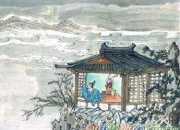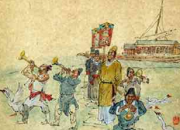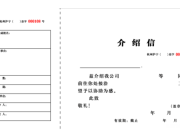Artful Aging年岁在长创造力不减英语美文
时间:2021-08-31By Karen Springen and Sam Seibert
Don’t ever assume your best work is behind you. Creativity often peaks in our later years.
On his desk at the University of Kentucky, Prof. David Snowdon displays an artistic treasure: a ceramic sculpture of Santa Claus perched atop a John Deere tractor. The artist, Sister Esther Boor, gave it to him before her death in 2002. At 107, she was the oldest participant in the research project Snowdon directs, the university’s groundbreaking Num Study. Since its start in 1986, the program has investigated the relationship between aging and Alzheimer’s disease by tracking the health of 678 Roman Catholic nuns over 70. Sister Esther took up ceramics after she retired at 97. Snowdon cherishes her reply on first being asked to join the project: “She said she was too busy to be in a study of old people.”
Snowdon still isn’t sure what kept Sister Esther so vibrant for so many years. But the secret of her kind of sustained creative energy is an increasingly valuable one. People are living longer lives than ever before. What matters now is to make those extra years more fulfilling – and it can be done. Researchers who investigate longevity are discovering that old age can be a peak period for creativity. “We always think of winding down in old age,” says Judith Salerno, deputy director of the National Institute on Aging. “We need to begin thinking about late life as an opportunity for people to explore.” Oldsters may not be a quick or prolific as they were in their 20s, but experience is a rich resource. Those who learn to tap it as they grow older can accomplish amazing things and sometimes develop talents they never recognized.
There’s no shortage of precedents, great and small. Some have been classic late bloomers. Laura Ingalls Wilder was in her 50s and 60s when she wrote her “Little House” books. Anna (Grandma Moses) Robertson sold her first paintings to a collector at 79 – and kept at it for the next two decades. Others went on blooming long after their expected season. I.M. Pei designed Cleveland’s Rock and Roll Hall of Fame + Museum in his 70s, and Frank Lloyd Wright died at 91 building his final monument, the Guggenheim Museum. Still others, like Franz Joseph Haydn and Ludwig von Beethoven, found way to redouble their inspiration as they entered their final years.











